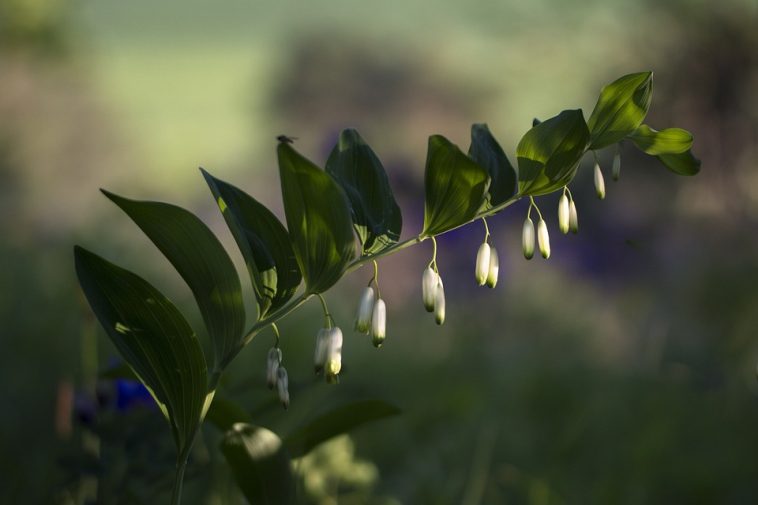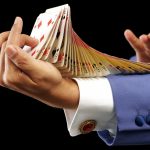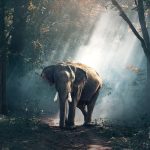[ad_1]

Image Source, AP/Reuters
In the Solomon Islands, the night before an election is known as “Devil’s Night.”
Political candidates offer bribes – everything from cash to bags of rice and Chinese-made solar panels – to win last-minute votes.
Vote buying has been a common tactic in the Pacific nation’s elections, and despite stricter electoral laws, it is difficult to stamp out.
But that’s not why some of the world’s biggest powers are watching Wednesday’s vote so closely.
The remote island nation plays a crucial role in the battle between China and the United States (and its ally Australia) for influence in the region.
Back to reality, however, voters will primarily focus on their immediate needs. More than 80% of the population of 700,000 live outside the capital, Honiara – most without access to basic services such as electricity, medical assistance, schools and transport.
Why China is an election problem
Wednesday’s election, delayed from last year, was the first time citizens were able to vote since the Solomon Islands pivoted from the West to Beijing.
Researcher Edward Cavanough, who traveled the country to write “Divided Islands,” a book documenting China’s shift toward Beijing, said the vote could be seen as a “referendum” on current leader Sogavare’s embrace of China. ”.
“The Prime Minister is very good at understanding the situation. [geopolitical competition] And pitting these major and regional powers against each other to extract incredible concessions,” he said.
The Solomon Islands, about 1,600 kilometers (900 miles) north of Australia, are one of the poorest countries in the region due to decades of tribal conflict.
Australia led the peacekeeping mission here until 2017.
Two years after the delegation withdrew, Prime Minister Sogavare chose to abandon decades of diplomatic relations with Taiwan in favor of Beijing. He then signed a security deal with China in 2022, the details of which remain unknown to the public.
This is a wake-up call for Australia and other Pacific neighbors. There were rumors that the treaty might allow China to establish naval bases in the US-controlled Pacific, but Sogavare denied the rumors.
Image Source, Getty Images
However, if he wins again, the Prime Minister has promised to only deepen ties – he sees Beijing as the provider of the country’s future prosperity, while also making clear his dislike of traditional partners Australia and the United States.
Since the deal was signed, Chinese aid and investment have poured into the country, bringing new stadiums, roads and other infrastructure. Mr Sogavare told the United Nations last year that China was Solomon Islands’ main infrastructure partner.
But his political opponents have criticized his close ties with China, questioning whether it is the best course of action for the country. Some say they will review security agreements with China if they take power, while others say they would prefer to work with traditional Western partners such as Australia.
How are elections conducted?
People on some 900 islands will go to polling stations to vote for national and provincial representatives between 07:00 local time (23:00 GMT) and 16:00.
There are 50 parliamentary seats to be filled. Negotiations then take place to form a governing coalition, with MPs voting among themselves to elect a prime minister.
Party lines have historically been fluid, with more than 100 candidates running as independents. Only 20 candidates are women – a long-standing problem.
Meg Kean, a Pacific analyst at Australia’s Lowy Institute foreign policy think tank, said the two competing alliances (DCGA and CARE) were fielding enough candidates to make it possible for either side to win.
Image Source, AP/Reuters
The leading candidates for PM are:
- Current leader Manasseh Sogavare (DCGA Alliance), who is considered capable of returning to power because of a political spending system that favors incumbents.He served as prime minister four times, but never as a consecutively elected prime minister
- Peter Kenilorea Jr, leader of the United Party (UP) wants to scrap China security treaties and support relations with Western countries.He is a former United Nations official and the son of the islands’ first prime minister after independence from Britain.
- Matthew Weir and former Prime Minister Hourik (CARE) formed a coalition to focus on education and health and a foreign policy that prioritizes Solomon Islands national interests.
- Gordon Darcy LilloSolomon Islands Rural Progress Party (Sipra), a former prime minister committed to change
What are the concerns about voting?
Analysts say that beyond geopolitics, this is a significant election for the consolidation of democracy in a country with a history of riots and coups.
Memories of recent unrest in the capital, Honiara, including one in 2021 when protesters tried to burn down the prime minister’s home, are still fresh amid growing concerns about political class corruption, persistent poverty and the country’s tilt toward China. Anger erupts.
It is also the country’s second election since the departure of the Australian-led regional aid mission.
Election observers are in the country to see if the vote meets standards of fairness and freedom amid longstanding concerns about practices such as “devil’s nights”. An election monitoring report by Australian academics found that during the last election in 2019, candidates randomly distributed cash and other items.
Dr Keane said: “In Solomon Islands, elections are largely about local issues and promises. Candidates with deep pockets and wealthy supporters are better able to win support and even buy votes.”
But corruption was also rife in post-vote negotiations, with Dr Kean telling an election briefing last week that “money, ministerial promises and hotel blockades were used to secure support for the ruling coalition”.
Some politicians have also claimed Beijing interfered in the election, and some researchers have noted Gifts from the Chinese Embassy Just days before the vote, we delivered fishing nets, knives, water tanks and solar lights to the main province of Malaita.
Previous research by Australian academics concluded that both China and Taiwan poured U.S. dollars into parliamentarians’ “constituency development funds” that were effectively viewed as slush funds.
Dr Keane said almost all of the money went to MPs who supported Prime Minister Sogavare.
[ad_2]
Source link









GIPHY App Key not set. Please check settings